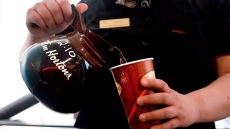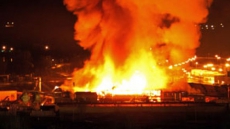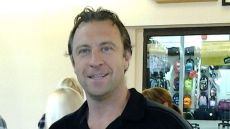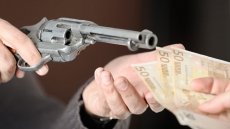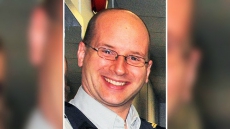Winnipeggers remained under a boil-water advisory Wednesday as health officials continued to test the city's water for E. coli and coliform.
The bacteria showed up in extremely low levels in six of 39 samples tested Tuesday.
Businesses and residents were told tap water was safe for bathing and laundry, but should be boiled for at least a minute before being consumed.
Geoff Patton, acting director of the city's Water and Waste Department, said the bacteria indications were likely to be a false positive, because other samples taken from the water system showed no sign of trouble.
"There's been multiple sampling at our supply location that's been clear," Patton said.
"We've got sample results upstream and downstream of the locations (that tested positive) during the same sampling period, and they were clear, so our investigation is to continue."
More test results were expected by Wednesday afternoon and Patton said the boil-water advisory could be lifted quickly if all the results came back negative.
Hospitals had not seen any increase in illnesses due to water problems.
"Our medical and surgical procedures do not use tap water, so there's no risk to our patients there," said Helen Clark, chief operating officer of emergency response with the Winnipeg Regional Health Authority.
"But out of an abundance of caution, we are following the city's advice where we've made sure all our water fountains and ice machines are not being used. Additional bottled water is being provided."
Food services were not affected at hospitals or personal care homes, Clark added.
Water bottles flew off store shelves soon after the advisory was issued Tuesday. But for most residents the advisory appeared to be more of an inconvenience than a cause for alarm.
All city pools remained open and the city said they were safe to use. The Pembina School Division said schools would be open, but asked parents to send bottled water with their children as the fountains would be shut off.
Dave Bilyk, a homeowner in south Winnipeg, said his family was coping well and did not feel the need to rush out and buy bottled water.
"We boiled about five or six litres worth and that way we can run it through the Keurig (coffee maker) for coffee in the morning and we can use it for brushing our teeth and so on," he said Tuesday night.
Brian Wills said he, his wife and four children were not too worried. He even used a bit of tap water to brush his teeth — something the city advised against. And he was pleasantly surprised to find his favourite coffee shop was still brewing Wednesday morning.
"I often buy my coffee out, so I would hope that they're doing something with their water to not get (people) sick."
Adam Schinkel, co-owner of Water World, a bottled water company, said his stores had closed for the day when the news broke.
"I got home around six o'clock, my phone started to blow up and all I was told was there was a boil-water advisory issued citywide in Winnipeg."
Schinkel said he started making calls and staff at the stores quickly headed back to reopen.
"We're here to help people that do need the water. From what I'm hearing, a lot of the grocery stores are already sold out of bottled water, so that's sort of where we come into play."
Patton said the test results that caused the boil-water advisory were puzzling. Some showed the presence of both coliform and chlorine, which don't go together, which he said indicates the samples may be incorrect indications of the presence of bacteria.
Officials didn't specify what type of E. coli was found in the tests. E. coli in water indicates recent fecal contamination and may indicate the possible presence of disease-causing pathogens such as bacteria, viruses and parasites. The Canadian Drinking Water Quality Guideline for total coliforms is zero per 100 millilitres of water and zero for E. coli.
Patton said the sample results included many with one coliform-forming unit per 100 millilitres and one that was higher, possibly nine.
While five of the six positive tests were east of the Red River, one was in the city's southwest. Mayor Brian Bowman said that led the city to expand its warning.
The city has faced water problems before. In 2013, a boil water advisory was issued and later lifted for a neighbourhood in Winnipeg when it was determined there was no E. coli contamination. However, the city and province faced hard questions about how people were notified.
About a year ago, the city figured out the cause of brown water that had been periodically pouring from residents' taps for months. Officials blamed manganese from Shoal Lake, Ont., from which Winnipeg water is piped, and from water treatment plants, where it is used as a coagulant.
Seven people died and thousands were sickened in Walkerton, Ont., in May 2000 when E. coli got into the water. An inquiry found cost-cutting by the government of former Tory premier Mike Harris was partly to blame.
